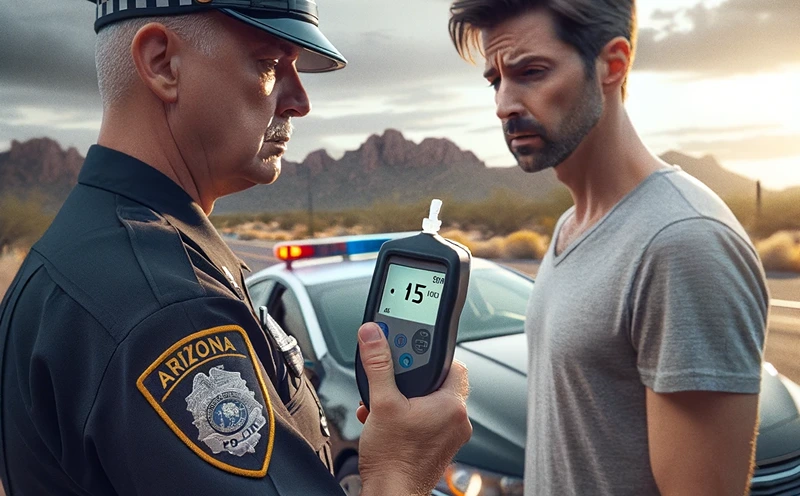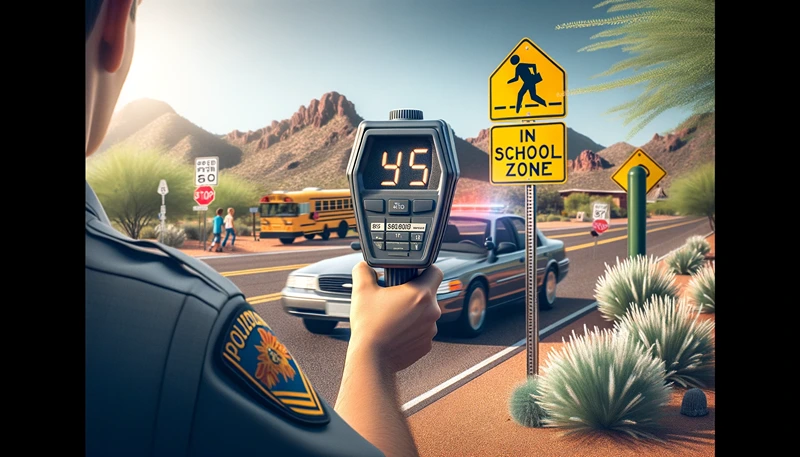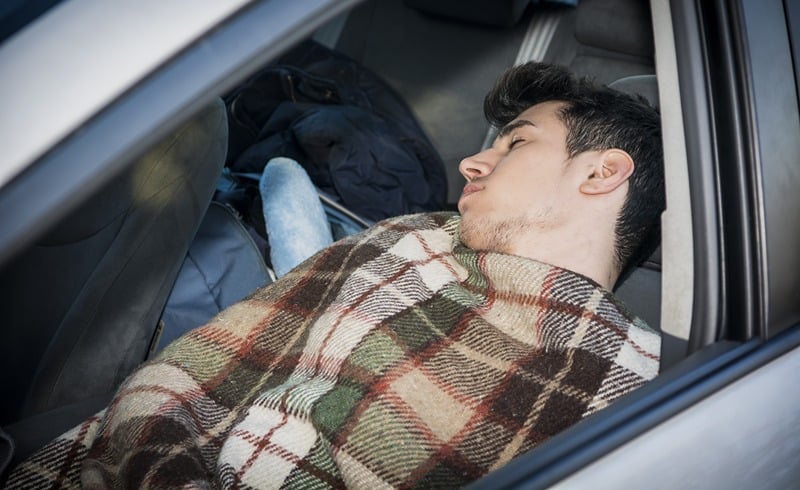Can you get a DUI for Sleeping in your Car at Kierland Commons?
Kierland Commons is a vibrant outdoor shopping center with high-end retail stores and popular dining spots like North Italia and The Greene House, drawing both locals and tourists.
A common misconception is that choosing to sleep in your car after drinking rather than driving automatically protects you from a DUI charge.
Under Arizona Revised Statutes, ARS § 28-1381,
you could still be arrested for a DUI even if you’re asleep in your car and not driving.
Shah Law Firm aims to clarify how Arizona DUI laws apply in these situations, particularly if you are in this predicament at Kierland Commons in North Scottsdale.
In this article, we will explore the following topics:
- North Scottsdale DUI Laws Compared to Surrounding Cities
- Kierland Commons Security Officer Catches You Sleeping in Your Car While Intoxicated
- Penalties for DUI in Scottsdale According to Arizona Revised Statutes
- Scenarios Resulting in Different Types of DUI Penalties While Sleeping in a Car at Kierland Commons
- The Precedent-Setting Case on “Actual Physical Control” in Arizona
- Defenses to Drunk Driving Charges
- Contact a Local DUI Attorney

North Scottsdale DUI Laws Compared to Surrounding Cities
Understanding DUI laws and enforcement in Scottsdale is one thing, but it’s important to understand the distinctions between different parts of the city and its surrounding area. North Scottsdale, home to upscale shopping destinations like Kierland Commons, is a prime example where the DUI laws are rigorously enforced and attract specific attention due to the area’s affluence and popularity.
Below, we compare DUI enforcement in North Scottsdale with that in other Scottsdale areas and neighboring cities.
Special Focus in North Scottsdale
North Scottsdale is known for its luxury establishments and high-end lifestyle. Because of this, the Scottsdale Police are particularly vigilant in this area, often patrolling hotspots like Kierland Commons. The Arizona Revised Statute § 28-1381 covers DUI offenses and is uniformly applied across Scottsdale but can be more stringently enforced in affluent neighborhoods like North Scottsdale.
Other Scottsdale Areas
Other parts of Scottsdale, such as Downtown Scottsdale or South Scottsdale known as Old Town Scottsdale, also experience vigilant DUI law enforcement. However, the nature of these areas—which may include a mix of residential, commercial, and nightlife venues—could result in a slightly varied focus regarding DUI patrols.
Phoenix’s Approach to DUI
As the capital city of Arizona, Phoenix also follows the state DUI laws codified under Arizona Revised Statutes. However, the city has a more extensive road network and a higher population, which can sometimes lead to less stringent patrolling in specific neighborhoods. This is not to say that DUI laws are lax in Phoenix, but the enforcement focus can differ depending on the area.
DUI Laws in Tempe and Mesa
Cities like Tempe and Mesa also adhere to Arizona’s state laws on DUI but may have different local enforcement practices. For instance, Tempe, home to Arizona State University, often sees increased DUI patrols around the campus and downtown areas. Mesa, on the other hand, focuses its DUI enforcement efforts around major events and festivals, with regular checkpoints.
Inconsistencies in Penalties and Sentencing
While the law remains consistent at the state level, penalties and sentencing can sometimes vary from city to city due to local court systems and the discretion exercised by judges. It’s important to consult with an experienced DUI attorney familiar with the specific city’s court system where the charge occurred.
A study by WalletHub ranked Scottsdale as one of the strictest cities in the United States when it comes to DUI penalties, reinforcing the city’s no-tolerance stance on DUI offenses.

Kierland Commons Security Officer Catches You Sleeping in Your Car While Intoxicated
Kierland Commons provides a range of services to ensure a pleasant and safe experience for all patrons. Among these services is a security team that patrols the property, as listed on their website.
Let’s imagine a scenario where, after a lively evening at one of Kierland’s popular restaurants, you decide to sleep in your car because you’ve had too much to drink. A Kierland Commons security officer on routine patrol notices you and approaches your vehicle.
Security Involvement and Police Notification
Kierland Commons security officers are trained to maintain the safety and well-being of visitors. If an officer finds you asleep and suspects you are intoxicated, they may be obligated to notify the Scottsdale Police Department. This could lead to a formal investigation and potential DUI charge under Arizona law, specifically per Arizona Revised Statute § 28-1381, which states that a person can be charged with DUI if found to be in “actual physical control” of a vehicle while under the influence.
Legal Consequences
Being discovered by a security officer while intoxicated and asleep in your car could lead to an escalation involving law enforcement. If the police are called, you could be subjected to sobriety tests, and if you fail, you may be arrested for DUI. The subsequent legal repercussions could include fines, mandatory alcohol education or treatment programs, jail time, and a suspended driver’s license.
Record Implications
A DUI charge and possible conviction can have long-lasting effects on your record, impacting future employment opportunities and even your ability to rent a home. The social stigma associated with a DUI conviction can also be considerable.
If you plan on drinking while enjoying the amenities at Kierland Commons, it’s best for you to arrange for alternative transportation options in advance. This could mean pre-booking a rideshare service or having a designated driver.
Penalties for DUI in Scottsdale According to Arizona Revised Statutes
Facing a DUI charge in Scottsdale, Arizona, comes with severe penalties, guided by Arizona Revised Statutes. This includes several types of DUI offenses, such as Standard DUI, Extreme DUI, and Aggravated DUI, each carrying its own set of repercussions.
- Standard DUI Penalties
- Governed by Arizona Revised Statute § 28-1381
- Possible jail sentence of up to 10 days for a first offense
- Fines and fees starting at $1,480
- Potential for license suspension and installation of an ignition interlock device (IID)
- Extreme and Super Extreme DUI
- Defined under Arizona Revised Statute § 28-1382
- Minimum jail sentence of 30 days for Extreme DUI; 45 days for Super Extreme DUI
- Fines and fees can reach up to $3,500
- Mandatory installation of an IID
- Aggravated DUI Offenses
- Outlined in Arizona Revised Statute § 28-1383
- Minimum 4-month prison sentence
- Significant fines and potential for license revocation up to 3 years
- Additional Penalties and Consequences
- Higher insurance premiums
- Loss of employment opportunities
- Mandatory alcohol education or treatment programs
Scenarios Resulting in Different Types of DUI Penalties While Sleeping in a Car at Kierland Commons
Kierland Commons, a popular shopping and dining destination in Scottsdale, Arizona, is a place where people often spend time socializing and enjoying themselves. The complex offers a variety of restaurants and activities that can sometimes involve the consumption of alcohol.
Below, we explore different scenarios where sleeping in your car at Kierland Commons could result in various types of DUI penalties as per Arizona Revised Statutes.
Scenario Resulting in a Standard DUI Penalty
- Situation: You’ve enjoyed dinner and a couple of drinks at North Italia. You decide you’re not fit to drive and opt to sleep in your car.
- Legal Aspect: Arizona Revised Statute § 28-1381 outlines that being in “actual physical control” of a vehicle with a BAC of 0.08% or higher constitutes a DUI.
- Potential Outcome: A Kierland security officer observes you and calls the police. If law enforcement finds that you’re in “actual physical control” and your BAC tests at or above 0.08%, you could face a standard DUI penalty, which includes fines, potential jail time, and other legal consequences.
Scenario Resulting in an Extreme DUI Penalty
- Situation: You’ve spent the evening at The Greene House, enjoying several glasses of wine. Knowing you shouldn’t drive, you opt to sleep in the car.
- Legal Aspect: According to Arizona Revised Statute § 28-1382, a BAC of 0.15% or higher is considered an Extreme DUI.
- Potential Outcome: If arrested and your BAC is found to be 0.15% or higher, you could face at least 30 days in jail, hefty fines, and mandatory installation of an IID, among other penalties.
Scenario Resulting in a Super Extreme DUI Penalty
- Situation: You attend a special event at Kierland Commons, where you partake in heavy drinking. You head to your car to sleep it off.
- Legal Aspect: A BAC of 0.20% or higher falls under Super Extreme DUI as per Arizona Revised Statute § 28-1382.
- Potential Outcome: If law enforcement is called and your BAC tests at 0.20% or higher, you could face a minimum of 45 days in jail, along with higher fines and a longer period of mandatory IID installation.
Scenario Resulting in an Aggravated DUI Offense
- Situation: You have a suspended license due to a previous DUI conviction but still decide to attend an event at Kierland Commons. Knowing you’re unfit to drive, you sleep in your car.
- Legal Aspect: Under Arizona Revised Statute § 28-1383, a DUI with a suspended license is considered an Aggravated DUI.
- Potential Outcome: If arrested, you could face a minimum of 4 months in prison, substantial fines, and a license revocation for up to three years.
The Precedent-Setting Case on “Actual Physical Control” in Arizona
The Arizona DUI law’s concept of “actual physical control” was
established through the Arizona Supreme Court case State v. Zavala in 1983.
The case centered on a defendant who was found asleep in a parked vehicle with the engine running, although not in a position to be readily driven. The court laid out a series of factors to consider in determining whether someone is in “actual physical control” of a vehicle while intoxicated.
The Zavala case highlighted several indicators that law enforcement and the courts should examine. These include:
vehicle’s location, whether the engine is running or not, and the driver’s intent.
The court reasoned that the “actual physical control” concept aims to penalize intoxicated individuals who pose a risk to public safety by having the potential to operate a vehicle, not merely to penalize the state of being drunk in a vehicle.
The impact of State v. Zavala on Arizona DUI law has been considerable. Its interpretation of “actual physical control” is frequently cited in DUI cases, providing both law enforcement and legal practitioners with a framework for assessing DUI situations that don’t involve actual driving.
Defenses to Drunk Driving Charges
Being arrested for DUI while sleeping in your car presents unique challenges and opportunities for defense. When you’re caught in such a situation in North Scottsdale, understanding the specifics of Arizona DUI law and previous cases in the area can be invaluable. Here are some tailored defenses that have proven effective under these circumstances:
Challenging “Actual Physical Control”
In cases where the individual is asleep in the car, the issue of “actual physical control,” as defined through the precedent of State v. Zavala, becomes particularly crucial. Demonstrating that you did not have the immediate capability to operate the vehicle could be a persuasive defense.
Factors like where the keys were located, whether you were in the driver’s seat, or if the engine was off could help your case.
Establishing Lack of Intent to Drive
In sleeping-in-car cases, showing a lack of intent to operate the vehicle can be beneficial. This can be supported by circumstances such as parking in a legally designated area, turning off the engine, and putting the keys in a location that is not immediately accessible.
Establishing this lack of intent can help counter the prosecution’s claim that you were in “actual physical control” of the vehicle.
Questioning Law Enforcement’s Observations
Another effective strategy is to challenge the observations and subjective judgments made by law enforcement. Questions may arise about why the police officer thought you were intoxicated, how they conducted sobriety tests, or whether their observations alone can definitively prove you were in “actual physical control” according to Arizona Revised Statute § 28-1381.
Data from the Maricopa County Superior Court indicates that DUI charges for individuals found sleeping in their cars were successfully defended in a noteworthy percentage of cases, often through challenging the concept of “actual physical control.”
If you are arrested for DUI while sleeping in your car in North Scottsdale, specialized DUI defense attorneys like those at Shah Law Firm can provide expert advice on how best to defend your case, drawing on the intricacies of Arizona law and local precedents.
Contact a Local DUI Attorney

That’s why having a skilled DUI attorney like those at Shah Law Firm can make all the difference. They know the ins and outs of Arizona DUI laws and can build a strong defense for you. They’ll work to question the evidence and help guide you through the legal steps, increasing your chances of a better outcome.
Don’t let a DUI define your future—contact the Shah Law Firm today and receive a free consultation at (602) 560-7408.











